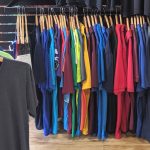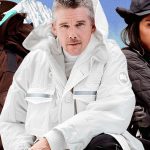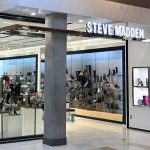Patagonia, prAna, REI, Nike and Timberland were ranked among the top
ten retail frontrunners in leading the way toward sustainability at
retail, according to Juice Energy, an electricity supplier with a focus
on renewable sources. Others making the list were Kohl's, Whole Foods,
UPS, Target and Wal-Mart.
Timothy Treadwell, Environmental Director at Juice Energy, Inc. — an
electricity supplier with a focus on renewable sources — believes
retailers who take the initiative on climate issues should be rewarded
for their efforts. The company noted that according to a survey by the
Retail Industry Leaders Association, 66 percent of retailers have
already begun the transition to green.
“As the holiday season approaches we believe consumers can help drive
this trend by supporting companies that are taking actions to reduce
their environmental impact,” said Treadwell. “Consumer support is the
most effective way of showing that sustainability is good for business.”
Juice Energy, Inc. and its staff of environmental and energy experts
identified the top ten companies it saw as “frontrunners in the shift
to green business.” Below is a synopsis of each companies shift
detailed by Juice Energy:
Patagonia:
In 1998, Patagonia became the first California-based company to buy
electricity from 100% renewable energy sources and achieved LEED gold
certification for its Nevada distribution center. Additionally,
Patagonia is a leader in recycling, with its Common Threads Garment
Recycling Program, which recycles used fleece for use in new products.
Kohl's:
Kohl's is the second largest retail purchaser of green power and the
largest among department stores, using 201,396,000 kWh annually. Kohl's
is also working to complete the largest rooftop solar project in U.S.
history next year, with installations at 63 of their 80 California
locations.
Whole Foods:
Whole Foods, a leading natural and organic supermarket, purchases green
power equal to 100% of their electricity usage, over 509,100,000 kWh
annually. Their green power usage earned them the distinction of EPA
Green Power Partnership Power Partner of the Year 2006 and ranks third
among all green power purchasers. Whole Foods also gained LEED Silver
certification for its Sarasota, FL store, the first supermarket to earn
the designation.
prAna:
In 2005, the outdoor and lifestyle apparel wholesaler prAna launched
their Natural Power Initiative to purchase green power equal to the
electricity usage of all 250 prAna retailers, the company's corporate
headquarters, and the homes of all their full-time employees, equaling
29,678,000 kWh annually. Now prAna plans to purchase wind power for
their entire North American dealer base of approximately 1,000 retail
partners in addition to its contracted U.S. — based sewing facilities.
REI:
REI, or Recreational Equipment Inc., purchases green power equal to
100% of their annual electricity consumption, totaling 63,080,000 kWh,
which ranks 9th among retail purchasers. REI has also committed to
reducing CO2 emissions by 1/3 from the 2006 baseline by the end of 2009.
UPS:
UPS operates the largest alternative fuel and low-emission fleet in the
industry, with 19,647 such vehicles worldwide. UPS is also reducing its
emissions by purchasing 2,949,545 kWh of green power for its California
facilities and streamlining delivery routes resulting in the
elimination of more than 28.5 million miles of driving to date.
Timberland:
Timberland recently introduced Green Index tags on a number of its
products, which rate products based on environmental factors such as
greenhouse gas emissions, the use of solvents, and organic content.
Timberland also plans to become “carbon neutral” by 2010 and recently
changed all packaging use for its footwear to 100% post-consumer
recycled boxes and soy inks.
Nike:
Nike has set a goal to be “carbon neutral” by 2011 and currently
purchases 79,820,000 kWh of green power for its World Headquarters,
representing 72% of annual consumption. The company is also designing
its footwear to meet targets for waste reduction, elimination of
volatile organic compounds and increased use of environmentally
preferred materials by 2011.
Wal-Mart:
Wal-Mart has made a commitment to reduce overall GHG emissions by 20%
over the next 8 years and set a long-term corporate goal to purchase
100% of their energy from renewable sources. Wal-Mart has also set a
goal to increase fuel efficiency of its fleet by 25% over the next 3
years and is currently the largest single purchaser of 100% organic
cotton products.
Target:
The discount retailer, Target, became a certified organic produce
retailer late last year and now offers more than 500 choices of organic
certified food. Target also reduces waste through food-donation
programs, giving away nearly 7 million pounds of food last year. They
also have four buildings in California using on-site solar electricity,
with systems under development at 14 additional stores.














